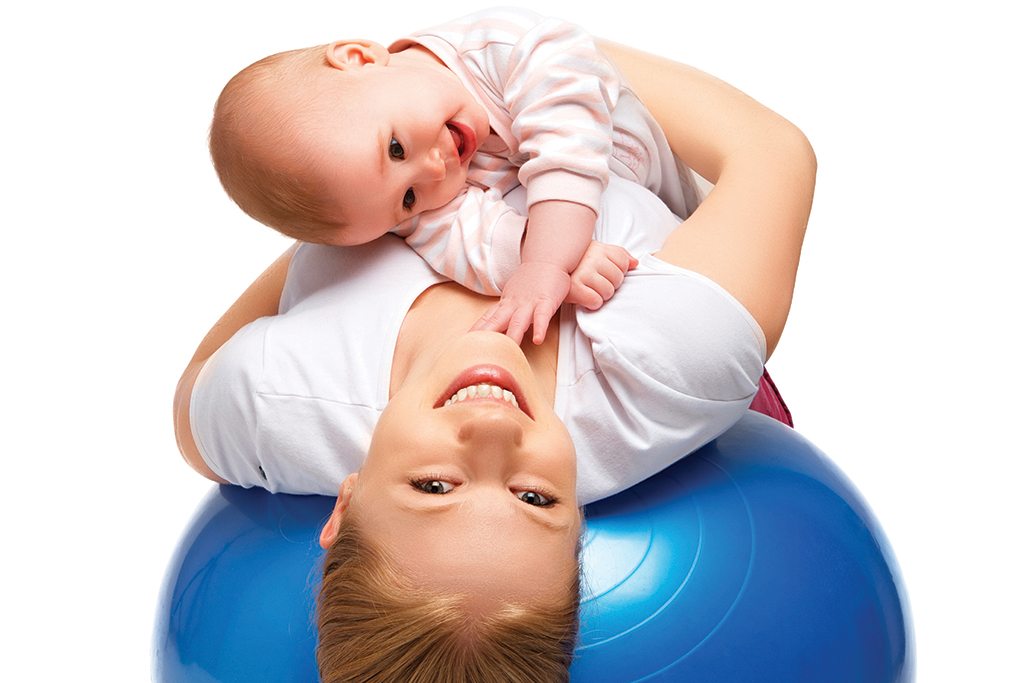6 Things New Moms Need to Know
 Becoming a new mom is exciting, but also comes with natural concerns for self and baby. You are not alone, and it is important to feel supported as you transition into this new role. Atlanta Parent asked Patrice Faye Little, a board-certified family nurse practitioner and mom of two, about questions new moms may have in the first few weeks after bringing baby home.
Becoming a new mom is exciting, but also comes with natural concerns for self and baby. You are not alone, and it is important to feel supported as you transition into this new role. Atlanta Parent asked Patrice Faye Little, a board-certified family nurse practitioner and mom of two, about questions new moms may have in the first few weeks after bringing baby home.
Table of Contents
Jaundice
Some newborns have yellowing of their eyes and skin in the first week of life. This yellowing is known as jaundice and is caused by a condition called hyperbilirubinemia. This occurs when bilirubin or broken red blood cells build up in the body.
Some infants who develop jaundice show symptoms in the hospital, but others may not develop symptoms until later. The American Academy of Pediatrics (AAP) recommends screening for bilirubin concentration within three to five days of birth.
Most jaundice occurs because the baby’s organs are unable to get rid of excess bilirubin right after birth, and the problem will resolve itself within a week. In some infants, jaundice may be caused by an infection, a digestive system problem or incompatibility of the mother’s and infant’s blood types, and may require further treatment.
Contact your pediatrician or pediatric practitioner immediately if you notice jaundice symptoms.
Breastfeeding
Most moms leave metro Atlanta hospitals breastfeeding their infants, and the American Academy of Pediatrics recommends they continue to practice exclusive breastfeeding for at least six months. According to the Centers for Disease Control and Prevention, nearly half of them do – 49 percent of U.S. mothers are still breastfeeding more than six months after giving birth.
Breastfeeding has developmental and health benefits for your baby, including a stronger immune system and lower risks of ear infections, gastroenteritis and respiratory conditions and even Sudden Infant Death Syndrome (a study published in the journal “Pediatrics” found that the risk was 50 percent lower in breastfed infants).
Babies need to be fed eight times per day or more. This is a critical time because the infant is at risk of dehydration. If you notice signs of dehydration such as cracked lips or less-wet diapers, contact your baby’s practitioner immediately. Breast milk provides all the nutrition your infant needs, but if you are concerned your baby is not getting enough to eat, look for signs of hunger, such as putting hand to mouth or sucking, rooting and fussing.
While breastfeeding is “natural,” it is also a learned skill. If you are having trouble breastfeeding, your doctor can recommend a lactation specialist, who should be able to identify and resolve any problems. La Leche League of Georgia is also a good resource for new moms who have questions about breastfeeding.
SIDS
The American Academy of Pediatrics advises bedroom sharing – but not bed sharing – with infants for the first year of life to decrease the risk of Sudden Infant Death Syndrome (SIDS) by 50 percent.
Consider placing a crib or bassinet near your bed at least for the first few months. Other safe-sleeping tips include placing your baby on his or her back on a firm sleep surface such as a crib that meets current safety standards. Find more information about cribs by visiting the Consumer Product Safety Commission.
Infants should sleep on their backs until 12 months of age to decrease the risk of SIDS and accidental suffocation or strangulation. The CDC urges new parents to consider tummy time only when awake, use a pacifier during nap times, and avoid using monitors as the sole way of checking on the baby.
Vaccines
Age-specific vaccines or immunizations are a safe way of building your baby’s immune system against infectious illnesses.
The CDC highly recommends vaccines to protect infants from an illness that can lead to hospitalizations and, at worst, death. It is important to protect your baby from common childhood illnesses and to protect yourself, too. Remember, if you are not well, it is hard to care for your baby.
Some parents are reluctant to vaccinate their child. Ask your baby’s pediatrician or practitioner about the risks and benefits associated with opting out of vaccines or vaccinating on an adjusted schedule.
Rashes
According to American Academy of Family Physicians, 12 million office visits each year are for children with rashes. Newborns during the first four weeks of life are prone to rashes, including cradle cap, baby acne and heat rashes.
Most skin issues are not of a major concern and will go away on their own, but some rashes may require further evaluation. Ask your infant’s practitioner about common rashes and key things to report at your visit. Avoid applying any over-the-counter medications on the baby’s skin unless advised by your practitioner.
Exercise
The American Congress of Obstetricians and Gynecologists recommends starting a workout regimen 6-8 weeks after delivery. The benefits of exercise include boosting energy, decreasing postpartum depression, helping weight loss, improving strength and promoting a good night’s rest.
Make sure you receive clearance from your practitioner before starting any exercise or lifestyle modification. If you’ve had an uncomplicated vaginal delivery, you can start light exercise such as a neighborhood stroll as soon as a few days after birth. After your body has had a few weeks to heal, start taking brisk walks pushing the baby in a stroller and graduate to other exercises.
The CDC recommends working out for 20-30 minutes three to five days per week. In addition, nutrition and adequate hydration play an important role in your health. If you are concerned about nutrition, follow up with your practitioner for further recommendations.







